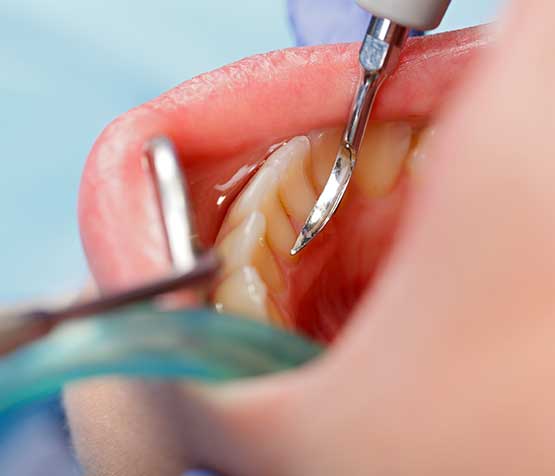Calculus, also known as tartar, and plaque buildup in layers. When calculus is not removed from the teeth and sits around the gumline, the plaque can attach to the calculus because it is a rougher surface than tooth enamel. It is also rougher than cementum, the layer that covers the tooth root itself.
Damage from periodontal disease also can cause your teeth to become loose. This is a sign of severe periodontitis. Periodontitis is the advanced stage of periodontal disease when it has spread to below the gum-line. As the gums swell from the ever-increasing plaque bacteria, they detach from the tooth. This process forms a space or “pocket” between the tooth and gum. Bacteria can grow rapidly in these pockets. This encourages further plaque buildup.
How Do You Prevent Periodontal Disease?
The causes and effect of periodontal disease can be devastating to the health of your teeth and gums. You can prevent periodontal disease by practicing good oral hygiene and visiting your dentist regularly. It is recommended that you should see your dentist once every six months. If you have active gum disease (or periodontitis), you may need to visit your dentist or a periodontist more often.
Brushing your teeth daily and flossing regularly (when done correctly) can help to remove most of the plaque from your teeth. Professional cleanings by your dental hygienist will help to keep the plaque under control in those hard-to-reach places that toothbrushes and floss just cannot reach.
If left untreated, periodontal disease may destroy the periodontal ligament and the alveolar bone. These are the very structures that support your teeth, and the outcome is often tooth loss.
At Peace Periodontics, we can help show you how to take care of your teeth – as part of a healthy lifestyle – so you will have a smile that can last a lifetime. If you have been referred to see a periodontist or if you suspect you are experiencing the signs and symptoms of gum disease, or want to learn more about the causes and effect of gum disease, we invite you to contact our office for an appointment.

